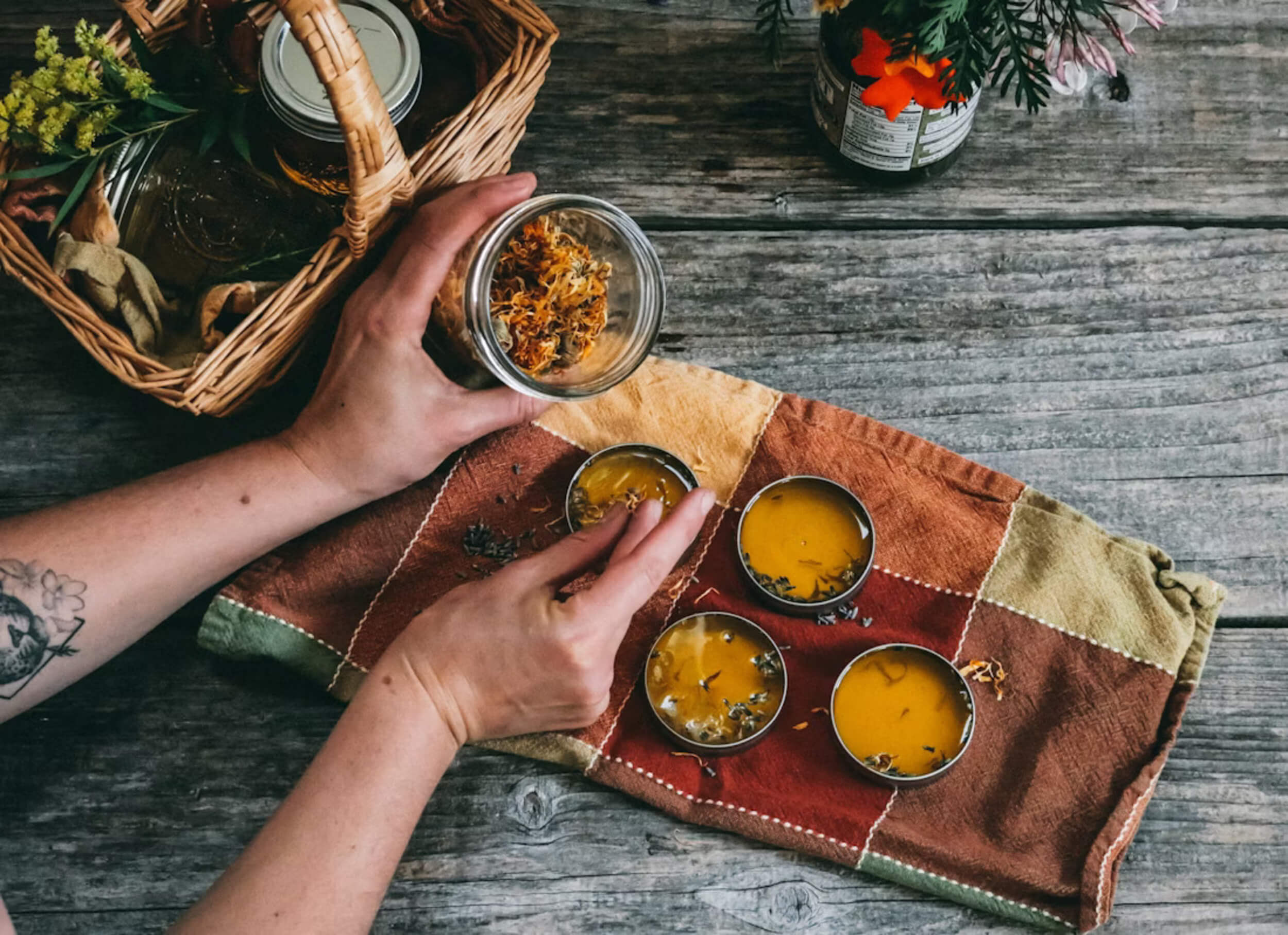These days, a lot of people feel worn down — long work hours, constant stress, and not enough rest take a real toll on the body. When cold and flu seasons roll through or fatigue becomes a weekly pattern, many start looking for safer, proven ways to feel stronger again. That’s where a guide to natural healing comes in. More people now want solutions supported by real research, not random trends.
Natural healing isn’t one single thing. It includes simple choices like eating nutrient-rich foods, using herbs that have been studied, adding small daily habits that support the immune system, and keeping the gut healthy. These are practical steps backed by science, and each one plays a different role in helping the body stay resilient.
This outline focuses on understanding how these natural tools work and which ones have evidence behind them. A clear look at the science sets the stage for everything that follows.
Understanding the Immune System: What Science Says About Natural Modulation
Plenty of people want better immunity, but most don’t know how the system actually works. The body has two main defenders.
• Innate immunity — the fast, first responder.
• Adaptive immunity — the long-term, memory-building protector.
Both work together, but they weaken when inflammation stays high, when the gut is out of balance, or when the body struggles with oxidative stress. These issues make it harder for immune cells to work the way they should.
Research shows that natural interventions help in simple but powerful ways.
• Antioxidants protect cells from damage.
• A healthy microbiome supports immune communication.
• Lower stress hormones keep the body steady.
• Good cellular repair helps defenses stay strong.
These steps build immune resilience, which means letting the body stay balanced instead of overstimulated. This is a central idea in any guide to natural healing, and it leads into the next part: how food supports this system every day.
Food as Medicine: Nutrient-Dense Eating Patterns That Strengthen Immunity
Many people don’t realize how much the daily menu shapes immunity. Food isn’t just fuel — it teaches the body how to repair, defend, and stay energized.
Whole Foods That Feed the Immune System
Different foods deliver nutrients the immune system depends on. Here are some of the most researched:
• Leafy greens — rich in vitamins that help cell repair
• Berries — packed with antioxidants
• Cruciferous vegetables like broccoli and kale — support detox pathways
• Garlic and onions — contain natural compounds that assist immune activity
• Citrus fruits — known for vitamin C
• Nuts and seeds — provide zinc and selenium
These nutrients help the body fight inflammation, support immune cells, and keep energy steady without repeating the same benefits in other sections.
Anti-Inflammatory Eating Without Restrictive Rules
The gut plays a major role in immunity. Foods high in fiber feed healthy bacteria. Polyphenols from colorful foods help control inflammation. Omega-3 fats protect cells from stress. These choices keep the gut environment stable, which directly supports immune strength.
Herbal Immunity Support: Evidence Behind Popular Botanicals
Herbs have been used for centuries, but today’s research helps explain why they work and when they’re most helpful.
Immune-Modulating Herbs with Research Support
Several botanicals stand out for their studied effects:
• Astragalus — supports cytokine activity and long-term resilience
• Elderberry — helps with antioxidant action and seasonal immune needs
• Echinacea — linked to early immune support
• Medicinal mushrooms like reishi and shiitake — known for unique compounds that help balance immune responses
These herbs promote modulation, which means bringing immunity into balance rather than pushing it too high. This idea helps avoid overstimulation, something health experts warn against.
When Herbs Are Most Effective
Timing plays a huge role:
• Early onset — herbs like echinacea may work better right when symptoms appear
• Daily support — mushrooms and astragalus are often used over time
Preparation matters too. Teas offer gentle daily benefits, tinctures are faster-acting, and standardized extracts give consistent doses. All options have different strengths.
This sets the stage for lifestyle habits that make the immune system even stronger.
Restorative Sleep and Immunity: The Most Underrated Healing Tool
Sleep is a major part of immunity, yet many people overlook it. Nights are when the body does the deepest repair work.
Why Sleep Drives Immune Repair
During sleep, the body releases hormones that help immune cells grow, recover, and organize their “defense plans.” Deep sleep boosts natural killer cell activity, which plays a role in fighting viruses. Good rest also gives tissues time to repair damage from daily stress and inflammation.
Evidence-Based Sleep Practices
Research points to simple habits that make sleep more restorative:
• Reduce bright screens before bed
• Keep a steady sleep schedule
• Create a calm nighttime routine such as light stretching or quiet reading
These steps strengthen immunity in a way that doesn’t overlap with herbs or food.
The next section shows how stress hormones change the way immunity behaves.
Stress Hormones and Immunity: The Cortisol Connection
Stress affects immunity more than most people realize. When cortisol stays high, the body shifts into survival mode instead of repair mode.
How Chronic Stress Weakens Immune Defenses
Long-term stress can:
• Increase inflammation
• Reduce healthy gut bacteria
• Make it harder to fight off viruses
• Slow healing after sickness or injury
These effects stack up, making the body more vulnerable over time.
Science-Backed Stress-Reduction Methods
Research supports several low-effort methods that help lower cortisol:
• Slow, deep breathing
• Mindfulness or short pauses throughout the day
• Time outdoors, even brief walks
• Writing down thoughts to release mental tension
Each tool helps immunity in its own way without copying what sleep or food already cover. The next section focuses on the gut, where much of immunity begins.
Gut Health and Immunity: The Microbiome’s Role in Natural Healing
Strong immunity often starts with a strong gut. This is where much of the body’s defense system is trained and activated.
Why 70% of Immunity Starts in the Gut
The gut lining acts as a protective barrier and communicates directly with immune cells. A diverse microbiome helps regulate inflammation, break down nutrients, and support immune signals. When the gut becomes unbalanced (a condition called dysbiosis), inflammation rises and the immune system struggles.
Natural Methods to Strengthen Microbiome Function
Research supports several simple habits:
• Fermented foods: yogurt, kefir, sauerkraut, kimchi, miso
• Prebiotic fibers: oats, bananas, onions, garlic
• Plant diversity: eating many types of fruits and vegetables each week
These steps focus only on gut function, separate from the previous food section, and help immunity from the inside out.
Natural Compounds With Clinical Support for Immune Function
Vitamins and minerals give immune cells the raw materials they need to work well.
Vitamins and Minerals With Strong Evidence
• Vitamin D supports immune regulation and respiratory protection
• Vitamin C helps with antioxidant protection and tissue repair
• Zinc plays a key role in immune cell development
Each nutrient has its own job without repeating benefits already mentioned.
Antioxidants and Plant Compounds
Plant compounds such as curcumin, quercetin, and green tea catechins help reduce oxidative stress that weakens immune cells. These compounds act on biochemical pathways and are different from the herbs covered earlier.
Gentle Movement and Circulation: How Activity Supports Immune Transport
Light activity helps the immune system move through the body more effectively.
How Exercise Helps Immune Cells Move
Moderate movement improves:
• Lymph flow, which carries immune cells
• Blood circulation, which delivers nutrients
• Cell communication, which supports faster responses
These benefits are unique from sleep and stress support.
What Science Recommends for Immune Support
Experts often suggest:
• 20–30 minutes of walking
• Light stretching or yoga
• Easy cycling or casual movement throughout the day
Overtraining, however, can weaken immunity, so balance matters.
This leads into a simple daily routine that ties everything together.
Creating a Daily Natural Healing Routine (Without Overwhelm)
Building a routine doesn’t have to be complicated. Small steps add up.
Morning Foundations
• Hydrate with water
• Do light stretching or a short walk
• Choose a nutrient-dense breakfast
Midday Support
• Eat balanced meals
• Spend a few minutes in sunlight
• Take short breaks to lower stress
Evening Wind-Down
• Limit screens
• Try gentle movement
• Keep a steady bedtime
These steps help people use a guide to natural healing in real life without feeling overloaded.
Final Thoughts
Natural healing works best when food, rest, gut support, movement, and stress balance all work together. Every part plays a different role, and research backs each one. Choosing steady habits over trends makes immunity stronger over time. With simple changes practiced daily, anyone can build a healthier, more resilient body.















